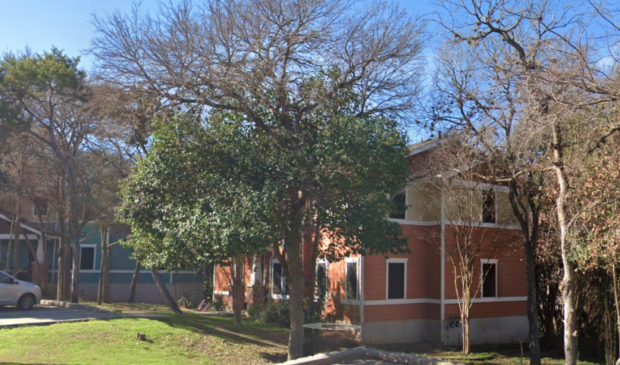Property group wants to help Rosemont residents, but won’t put anything in writing
Wednesday, August 11, 2021 by
Seth Smalley At the Tuesday meeting of the Travis County Commissioners Court, Patrick Howard with the Housing Authority of Travis County announced that the board of directors of the Strategic Housing Finance Corporation unanimously voted against an agreement drafted for, and proposed by, tenants of the Rosemont apartment complex in South Austin.
Though Howard verbally pledged to honor the “spirit and intent” of tenants’ requests, residents are still concerned that nothing is in writing, with some speculating that the Housing Authority is acting in bad faith due to the board’s decision neither to engage in negotiations nor to let anyone know about this decision until the day of the Commissioners Court meeting.
The affair started in mid-July when Rosemont tenants were abruptly given notice that many of them would be evicted by the end of the month due to broken pipes, water damage and mold caused by Winter Storm Uri.
Jennifer Richards, a staff attorney with Texas RioGrande Legal Aid, helped tenants draft the written agreement, which was given to Howard on July 29. The agreement lists the requests that Howard had verbally agreed to during the meeting they had on the same day.
Tenants requested the general right to return to their property as well as the right to return to the property specifically for individuals who had self-evicted after first receiving the notice. They additionally requested high-speed internet in the temporary sites of relocation and that all moving and relocation costs be paid by management.
According to Gabriela Garcia, a project coordinator with BASTA, a nonprofit dedicated to helping Austin renters, the Housing Authority has already gone back on 12 out of 54 of Howard’s verbal commitments, and has refused to commit to anything in writing.
“There were promises that they wouldn’t have to pay their rent for July and August, that there would be compensation for lost work time, health care costs and mental health costs. They agreed to a large number of demands,” Richards told the Austin Monitor.
Howard readily admits that several of his verbal commitments since the meeting have been broken, though he maintains it’s due to continually changing circumstances and an overabundance of moving pieces. He says there are qualifications that need to be made on all of the listed infractions. For example, one of the broken promises listed is that tenants’ security deposits would be returned within 10 days. Howard counters that they’re trying to prioritize the security deposits for those who aren’t coming back and that anyone who turns in their keys can get their deposit back.
Howard additionally said that tenants not receiving the weekly written update in Spanish (one of the promises) was due to a staff error that has since been corrected.
“There were many things in the agreement that the board felt maybe were subject to change, so didn’t feel comfortable signing, or felt that they would be subject to some sort of legal interpretation. Rather than signing the agreement, they felt like we should try to honor the spirit of the agreement,” Howard told commissioners.
When the Monitor asked Howard if there were any promises from the agreement that the board could commit to in writing, he indicated the answer is probably no. “They don’t want to sign an agreement. They want to carry out the functions, as opposed to making it something that’s legal and binding, as if there’s a legal obligation.”
Commissioner Jeffrey Travillion said, “As long as we are trying to achieve the spirit of those recommendations and goals, I can understand not wanting to create a contractual situation.”
Meanwhile, Richards, the attorney who helped tenants draft the agreement, told the Monitor, “The only reason I can think of to not enter into a written agreement is because they don’t want to be held to any commitment. They can make all the promises they want, but if it’s not in writing, then they can’t be held to it. That’s my suspicion.”
The Austin Monitor’s work is made possible by donations from the community. Though our reporting covers donors from time to time, we are careful to keep business and editorial efforts separate while maintaining transparency. A complete list of donors is available here, and our code of ethics is explained here.
You're a community leader
And we’re honored you look to us for serious, in-depth news. You know a strong community needs local and dedicated watchdog reporting. We’re here for you and that won’t change. Now will you take the powerful next step and support our nonprofit news organization?









